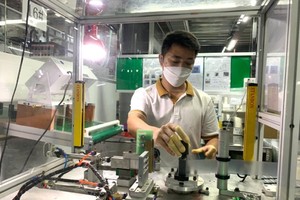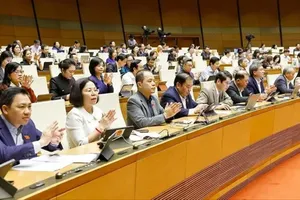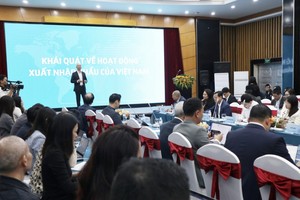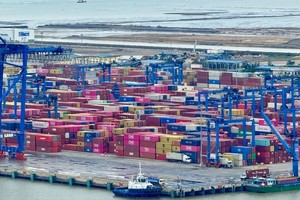Viet Nam's Government needs to help local companies improve their competitiveness on global markets, experts said at the Autumn Economic Forum 2015 yesterday.
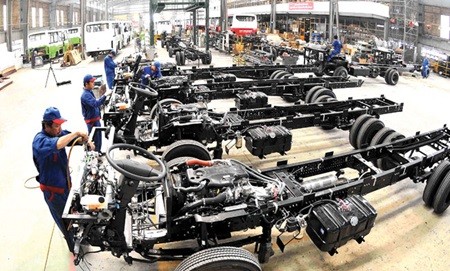
"Viet Nam needs to put in place structures, institutions and infrastructures that create a vibrant private sector economy in which resources can flow quickly towards competitive firms," said Sandeep Mahajan, Lead Economist of the World Bank in Viet Nam.
Sandeep highly appreciated how Viet Nam had taken advantage of opportunities to improve its global integration by deepening its cooperation with ASEAN countries and other countries in the world such as Japan, South Korea, China and the US.
He reported that the country's trade to GDP ratio reached 164 per cent in 2013 – among the highest in ASEAN – and its manufacturing exports since 2000 had recorded a sharp increase with an annual growth rate of 23 per cent to reach $94.6 billion in 2013.
However, despite such great achievements in recent years, Viet Nam still needed to help its domestic companies so that they became more competitive and important in the global value chain.
First of all, they suffered disadvantages from foreign-biased policies issued by the government that allowed a huge amount of Viet Nam's foreign direct investment (FDI) to operate in a closed circuit, generating little technology transfers for local firms, especially small and medium-sized companies, he said.
As a result, the gap in technology expertise between local and foreign companies had increased and prevented local companies from benefiting from the world's modern technologies, he said.
Lack of modern technologies also reduced the quality of products and services provided by local companies and they became less competitive on both domestic and foreign markets, he added.
Secondly, 94 per cent of domestic companies in Viet Nam were small and medium-sized that employed less than 50 labourers, he said.
Those companies hardly drew attention from foreign companies as they lacked necessary resources such as capital and human resource to meet the international demand even though they may have high productivity, Sandeep said.
However, the problem is worse as Vietnamese big firms with more than 300 workers, most of which are state-owned enterprises, have less productivity than small and medium-sized ones, he added.
Nguyen Van Giau, Chairman of the National Assembly's Committee for Economics, said that local companies were unprepared to receive opportunities and challenges from global integration.
Consequently, those companies had to face tough competition from imported products that may make them lose market share on the domestic market, he said.
However, Nguyen Dinh Cung, Head of the Central Institute for Economic Management, said that domestic companies should be the only one to be blamed for failing to compete on the global market.
He said that costs and policies were the major concerns for those companies right now, so they were unable to have further vision to deal with global integration.
The important thing was the Government had not paid enough attention to global integration, which means the Government had remained a "manager" of the economy for the last 30 years, setting a lot of barriers for private companies.
"It is the Government not private companies that needs to change more in order to improve the market conditions and allow companies to improve their businesses", Cung said.
Truong Dinh Tuyen, former Minister of Industry and Trade, said that the country had achieved great global integration, however, slow reform of internal structures had made the country miss opportunities and created a lot of problems.
He also suggested that the State should transform into a guider and especially improve the human resource development policies or the country would lag far behind other countries.




